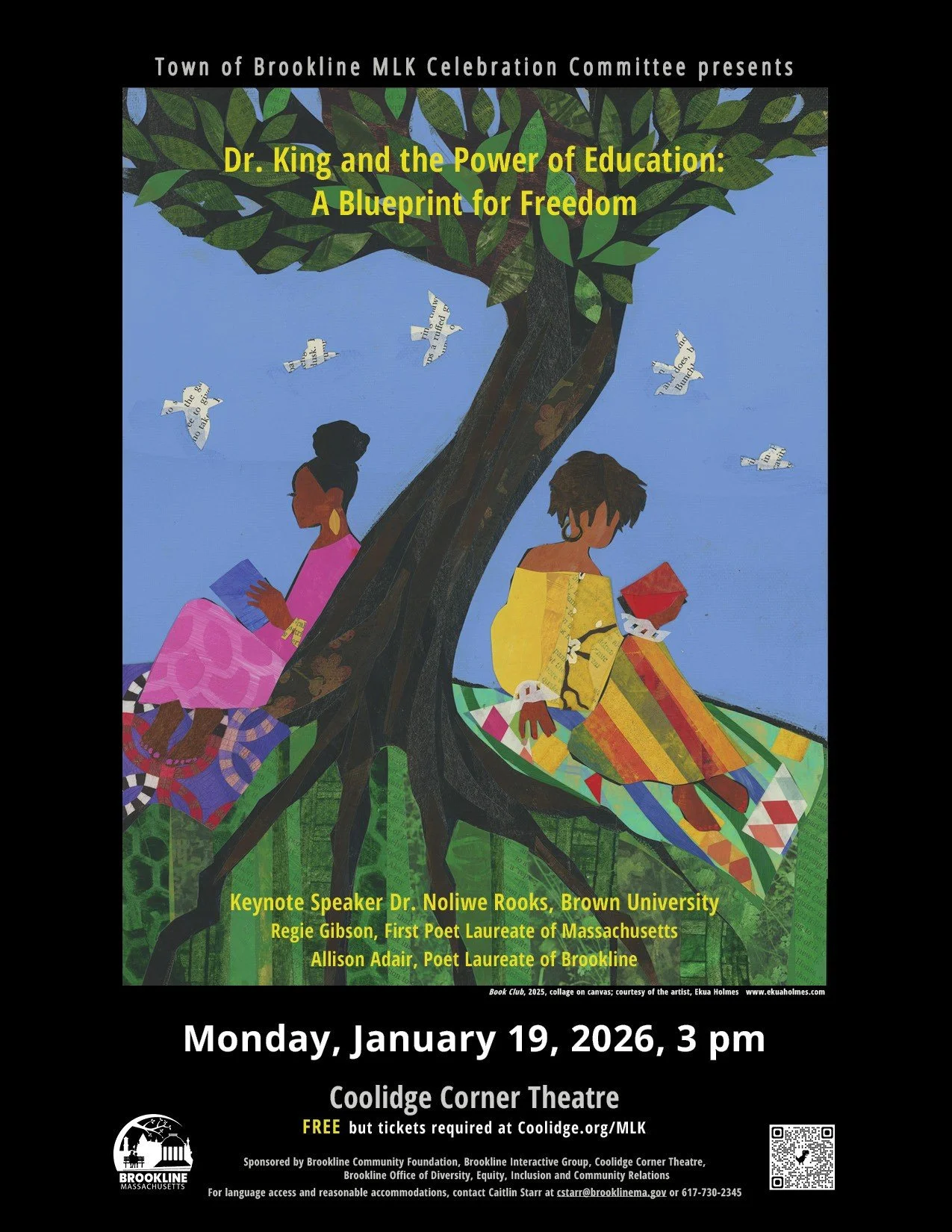Integrated Book Talk: Brown Reads 2026
Brown 2026 Reads: Integrated: How American Schools Failed Black Children by Noliwe Rooks
Time:
2:00pm - 3:00pm EST
Sponsor:
Brown 2026
Location:
John Carter Brown Library
Room:
Conference Room
Brown University is observing the 250th anniversary of the founding of the United States through “Brown 2026,” a campus-wide initiative to demonstrate the important role of research and teaching universities in fostering open and democratic societies. With support from the College, Brown 2026 facilitates student reading opportunities and supplies books, with author discussions to follow.
This event features the book Integrated: How American Schools Failed Black Children (Pantheon, March 2025). Award-winning scholar Noliwe Rooks weaves together sociological data, cultural history, and personal records to challenge the idea that integration was a boon for Black children. At once assiduously researched and deeply engaging, Integrated tells the story of how education has remained both a tool for community progress and a seemingly inscrutable cultural puzzle. Rooks’s deft hand turns the story of integration’s past and future on its head and shows how we may better understand and support generations of students to come.
For more information, including a full list of Brown 2026 Reads selections, visit https://brown2026democracy.brown.edu/research-teaching/brown-2026-reads.

Keynote: Dr. King and the Power of Education
This keynote revisits Martin Luther King Jr.’s lesser-known but deeply strategic engagement with education to argue that schools were central to his vision of freedom, power, and democratic healing. Drawing on King’s 1967 “Life’s Blueprint” address in Philadelphia, his quiet presence at Ernest Green’s Little Rock graduation, his confrontations over school segregation in Chicago, and his warning to Black teachers against integration without power, the talk reframes education as civil rights infrastructure rather than social afterthought. The address closes by offering King’s educational vision as a disciplined, hopeful blueprint for progress today.
History of Education Society Annual Meeting-Panel Chair
The panel takes root in the Black Atlantic, as the diasporic routes of formal, and informal, intellectual networks in the Anglo Atlantic world. Through the subversive histories of education in Guyana, the United States and Britain, we examine the transatlantic linkages of education and resistance in Black educational movements across the time and space of the Black Atlantic.
Panel Chair-A Labor of Love: New Perspectives on the History of Black Teachers from Jim Crow through School Desegregation
This panel will focus especially on the interplay between working conditions and the professional goals of Black educators, specifically how local contexts across the nineteenth and twentieth centuries such as white racism and Black self-determination impacted Black teachers’ education and training, pedagogy, curriculum, professional status, and how they viewed themselves and their roles in K-12 schools. We know that Black educational traditions have led to high levels of academic achievement, community development, and social transformation through public education. Black controlled educational spaces, including classrooms and schools, are sites of political development where social justice is pursued and collective flourishing takes place.Today, scholars have demonstrated that Black teachers make a measurable difference in the educational experiences and achievements of Black youth, while creating a more diverse, inclusive, and equitable learning environment for all students. Yet Black teachers’ labor remains exploited and underappreciated, a fact that is directly related to declining percentages of Black teachers in US public schools. The goal of this panel is to take a fresh look at the incredibly diverse working conditions of Black teachers across two centuries to analyze how Black educators navigated these circumstances and remained focused on the twin goals of supporting Black students and advocating for equal treatment for Black teachers, and to suggest future directions for research.
Unspeakable Challenges
Celebrating Mary McLeod Bethune's 150th birthday with Southern Association of Women's Historians.
Black Metropolis Research Consortium
This talk will focus on Mary McLeod Bethune’s foresight and exhortation to Black women to document themselves and the subsequent collections that still exist due to her exhortation which continue to inspire
Center for the Study of Race and Ethnicity
New Book Talk Series w/ CSREA Center Director, Professor Prudence Carter
